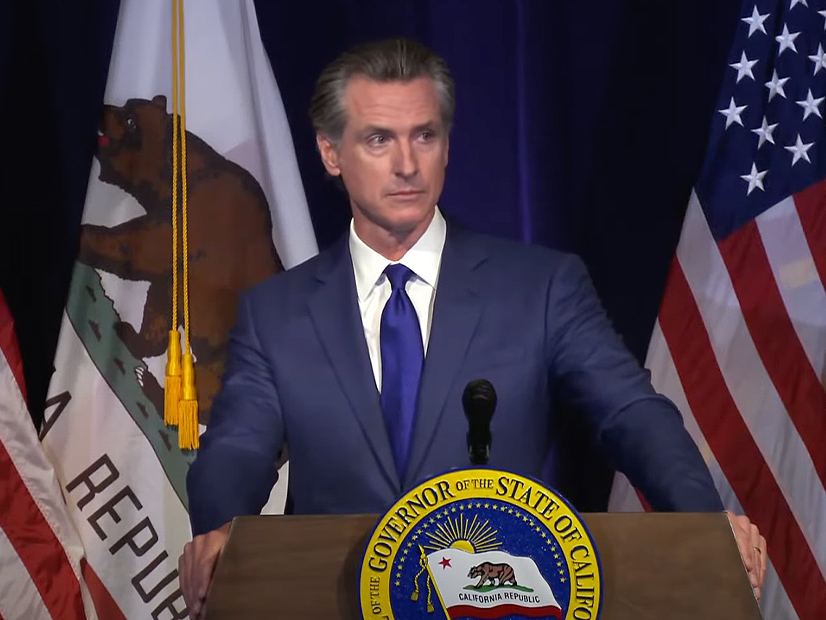
The May revision of California Gov. Gavin Newsom’s proposed budget, released Friday, anticipates a deficit that is $9 billion more than his January forecast, resulting in additional cuts across many programs.
But the governor refrained from further cuts to major initiatives on climate and energy, including billions of dollars in funding for zero-emission vehicles and wildfire prevention.
Fearing deeper cuts, environmental advocates said they were relieved.
“A budget is a statement of values, and the governor’s May revision continues to showcase California’s climate leadership,” James Pew, a climate policy fellow with advocacy group NextGen Policy, said in a statement. “Given the significant economic headwinds on the horizon, we were pleased to see that the governor’s May revision climate proposal does not make further cuts to last year’s climate commitment.”
The governor’s January budget plan for fiscal year 2023/24 proposed eliminating $6 billion in funding for clean transportation and other climate initiatives from the 2022/23 budget because of a projected plunge in tax revenues. (See Calif. Governor Proposes $6B in Climate Budget Cuts.)
The May revision retains those proposed cuts without suggesting further reductions, even though the budget shortfall in FY23/24 grew from a forecast $22.5 billion in January to $31.5 billion in May.
If adopted by the California State Legislature, the proposed cuts would reduce last year’s $54 billion, five-year commitment for climate initiatives to $48 billion, maintaining 89% of last year’s historic funding levels. Even reduced, the amount represents the world’s largest climate pledge at a “sub-national level,” Newsom said in January.
Major cuts proposed in January and carried through in the May revision include a $1.1 billion reduction in the state’s $10 billion, five-year commitment to funding for light-, medium- and heavy-duty ZEVs. The budget proposal maintains $8.9 billion, or 89%, of the planned ZEV investments, which are intended to support the state’s transportation decarbonization mandates, including a requirement that all new passenger vehicles sold in California be zero emitting starting in 2035.
The May revision also maintains $2.7 billion over four years to “advance critical investments in restoring forest and wildland health to continue to reduce the risk of catastrophic wildfires in the face of extreme climate conditions.”
Pacific Gas and Electric, and to a lesser degree Southern California Edison, have faced multibillion losses in recent years from wildfires sparked by their equipment that exploded out of control because of forest and climate conditions.
California expects that federal funds — including $100 billion in the Inflation Reduction Act for state clean energy and climate programs — could offset some of the proposed cuts.
The governor has also proposed a $1.1 billion bond that would pay for some climate programs, such as water recycling, that would otherwise see sizable funding reductions.
The legislature has until June 15 to adopt a budget plan, allowing for a month of negotiations with the governor’s office. Some lawmakers are unhappy with the governor’s proposal and support alternatives developed by the legislature.
State Sen. Josh Becker, chair of the budget subcommittee that oversees climate and energy spending, said in a statement that he would continue to push a Senate proposal that “protects many programs and prepares the state to access federal climate dollars through matching and technical assistance, which are absent in the governor’s proposal.”
“My colleagues and I will continue to advocate and work with the Newsom administration to enact responsible ways to maintain critical investments and prevent backsliding on our climate progress,” Becker said.


